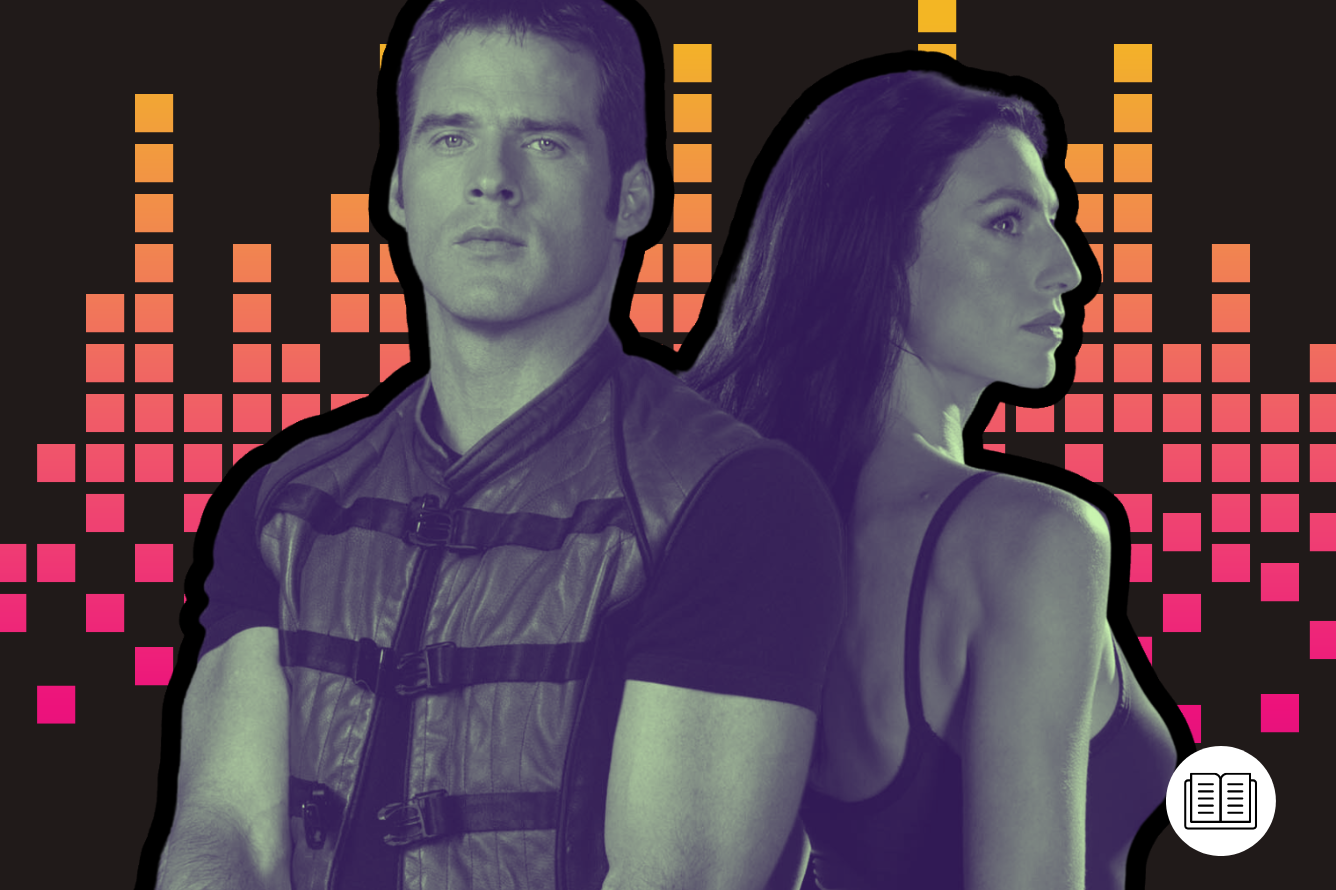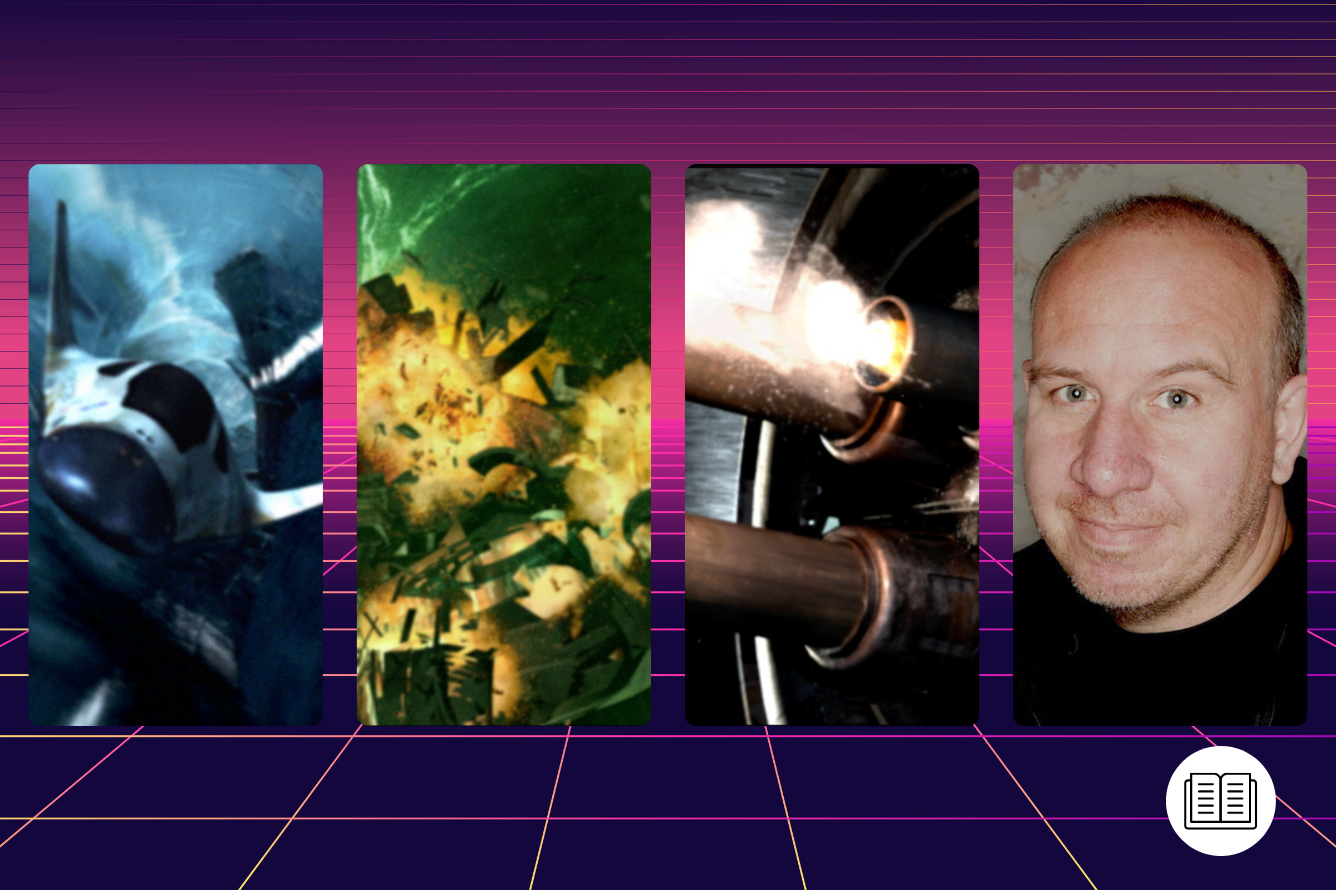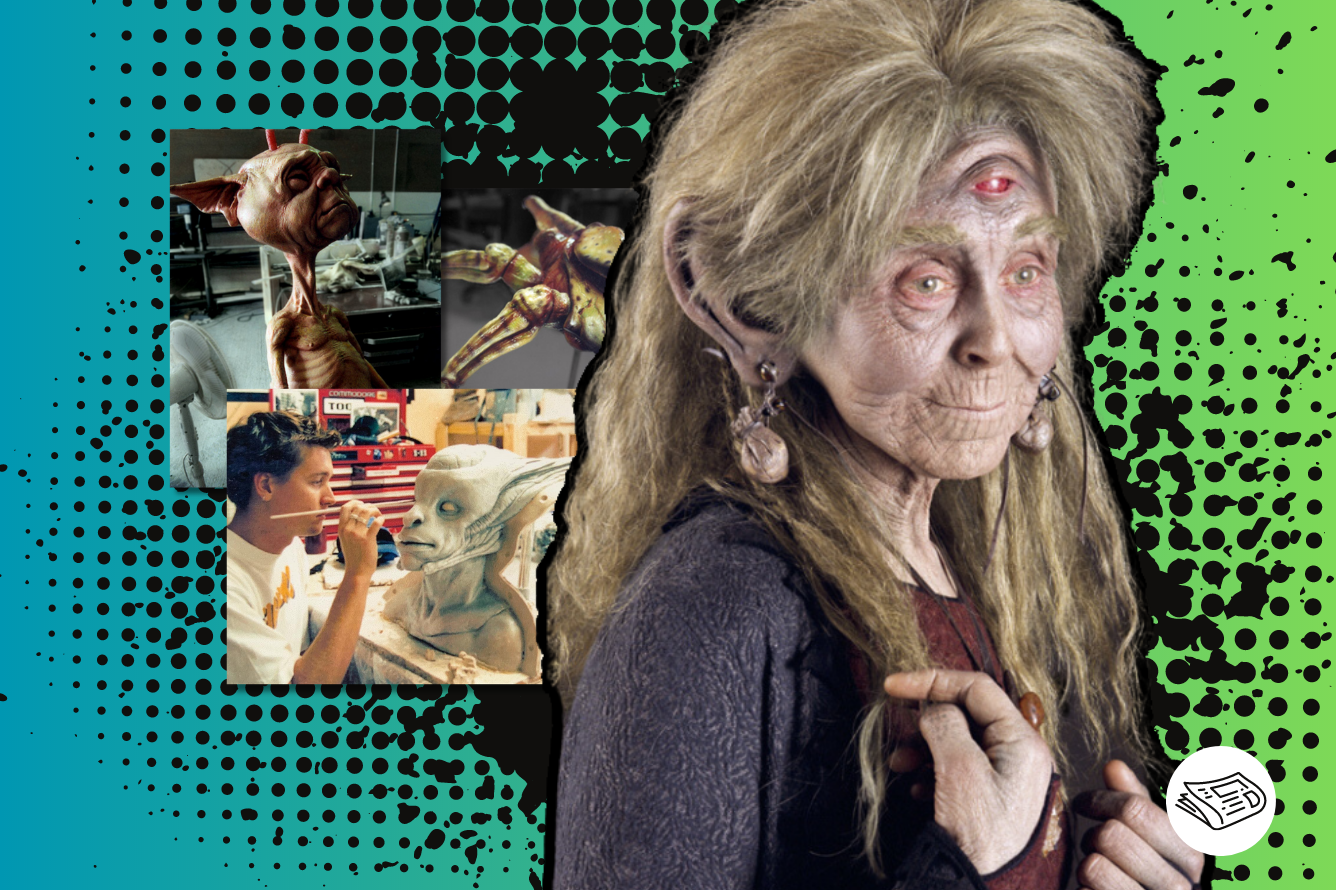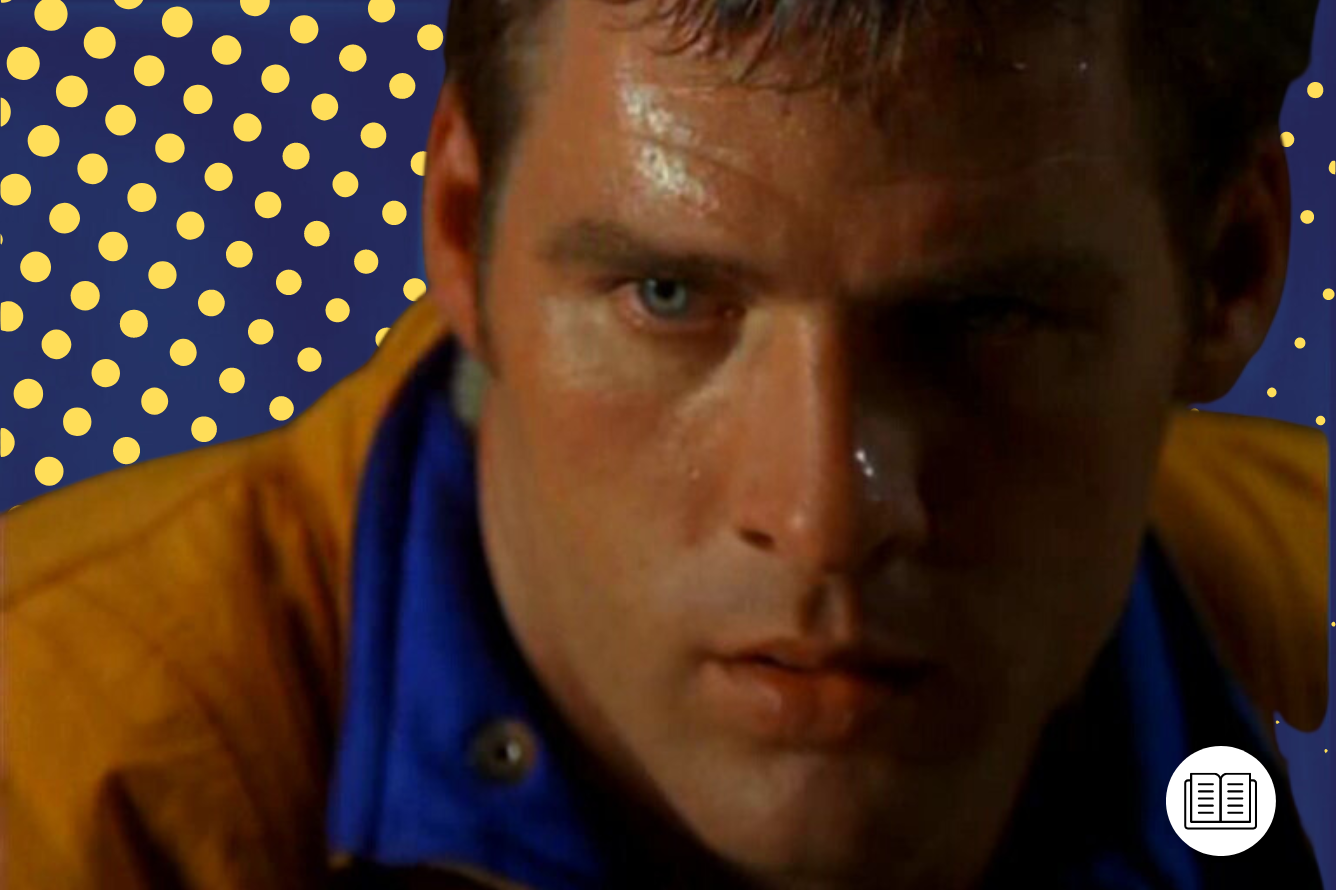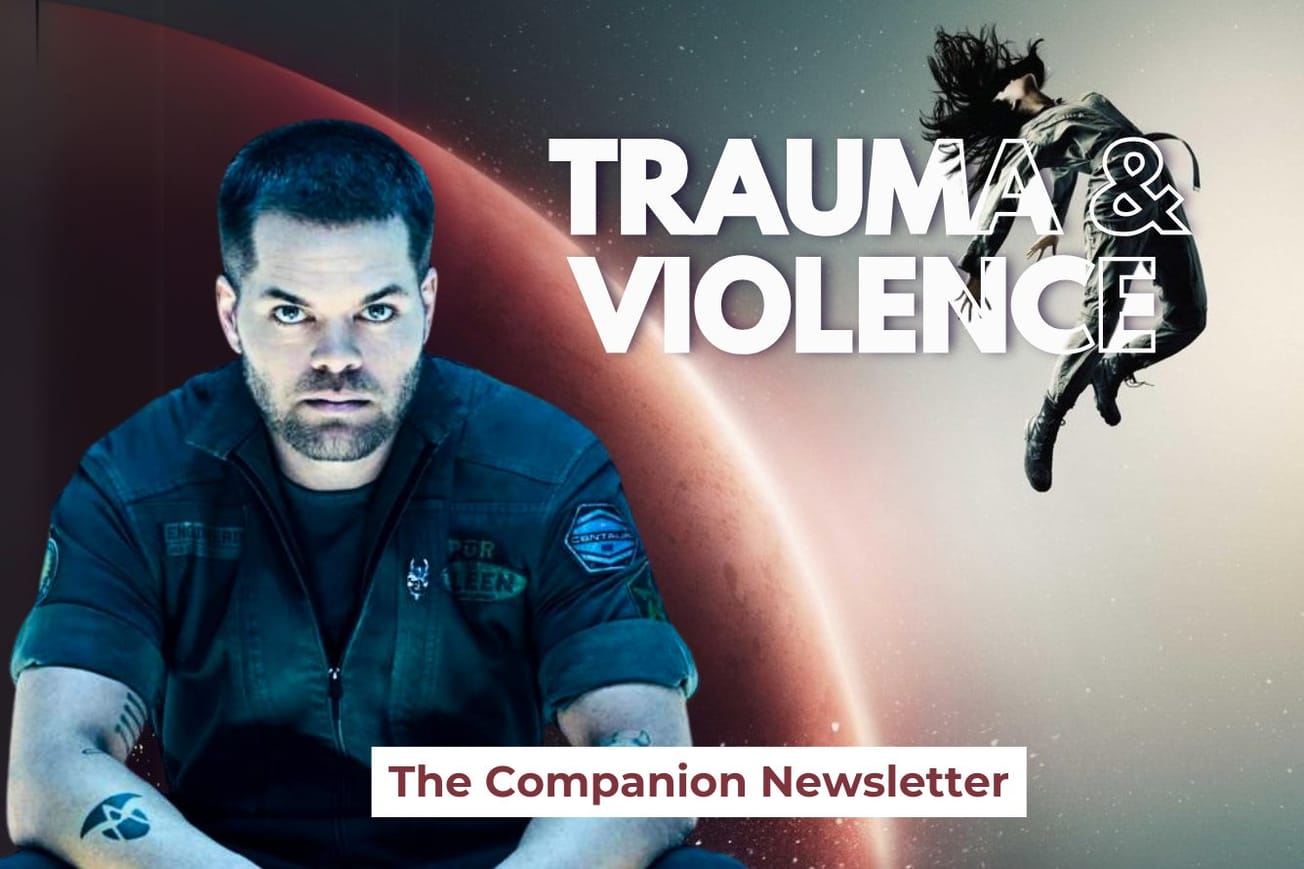By any measure, Farscape’s theme music is one of the greatest genre openings of all time. It’s up there with Nerf Herder’s frenetic theme for Buffy the Vampire Slayer for communicating in seconds the tone, the energy, and the feeling of your favorite show.
Farscape is anarchic and alien, sexy and savage – and that’s exactly how it sounds.
The frantic stab of the first few seconds is like a needle scratch to shock you from your stupor: listen up, normal programming has been suspended. The tribal percussion detonates like a barrage from a Peacekeeper Command Carrier, the war drums in a Luxan sweat lodge, or the beating of Moya’s own great heart. The rising choral scales both serene and high anxiety all at once. The Farscape theme makes you want to grab a blue face and kiss it, or fire a blaster wildly laughing in the face of danger.
“We were given the visual images of Moya, the spaceship, and I think three of the characters,” explains composer Chris Neal. “We knew what Ka D’Argo was gonna look like and Rygel, and [Zhaan], and the two leads had been cast. There was a bit of a synopsis of the first two or three episodes. And that was the brief. They wanted something energetic – plenty of energy.”
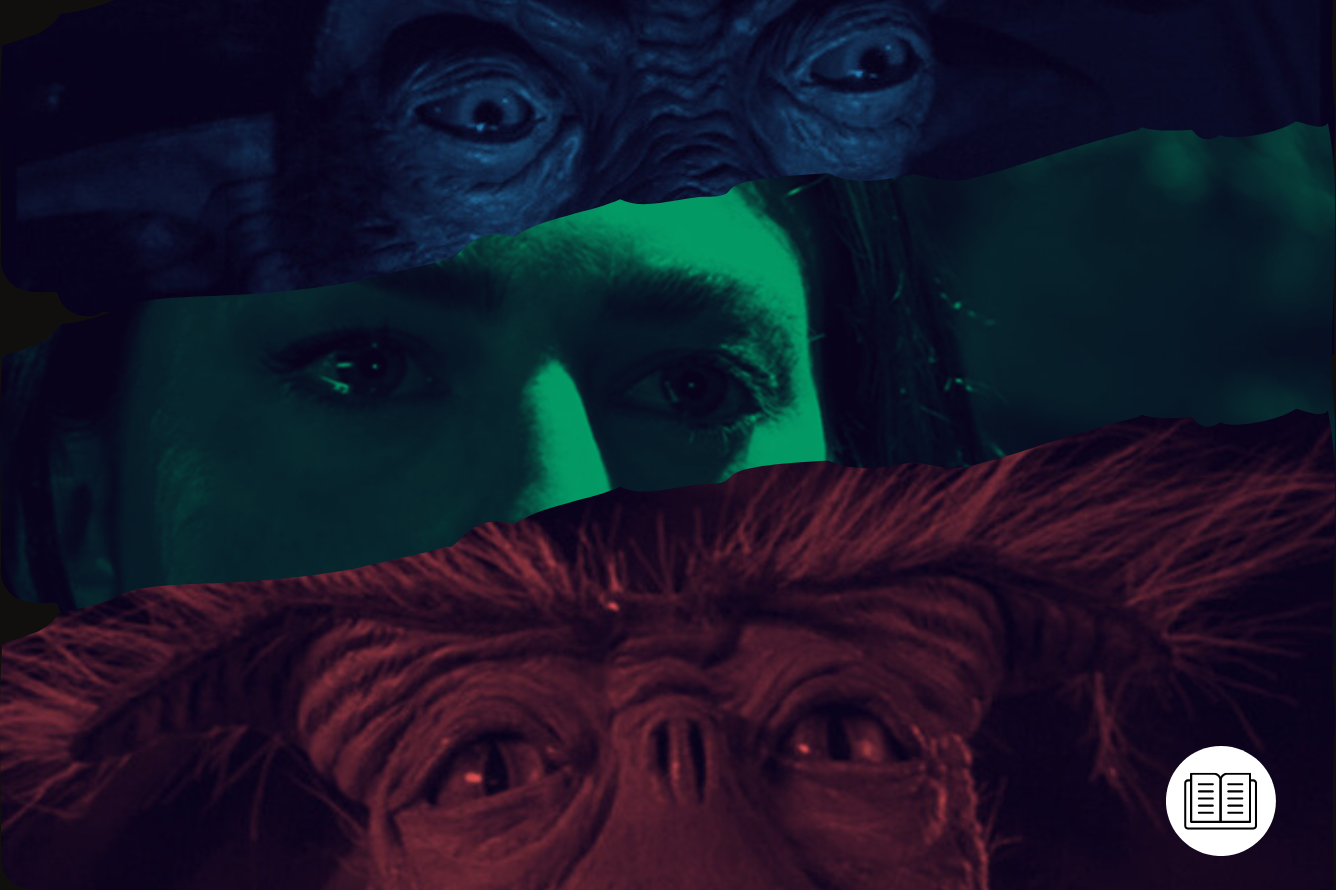
Subvision and Farscape’s Original Theme
Neal was a veteran of the resurgent Australian film industry of the 1980s – sharing an Australian Film Institute Best Original Music Score award for the 1985 musical Rebel. By the time Farscape was starting up, Neal was composing with his son Braedy under the name SubVision but became involved through his past work with producer Matt Carroll on the disastrous 1992 movie Turtle Beach. One of the most respected film producers in Australia, Carroll had made his name on some of the most critically acclaimed titles of the Australian New Wave – the likes of Sunday Too Far Away (1975), Storm Boy (1977), and the Academy Award-nominated period drama Breaker Morant (1980).
“I had a relationship with a Sydney filmmaker named Matt Carroll, who was approached by Brian Henson. They were evolving the thing conceptually when Henson came across the incentives that were being offered by the New South Wales [state] government to get a big budget overseas productions to Sydney, to make them in some fairly sophisticated sound stages that were built here in the late 90s. So Henson had done a deal to develop the first series of Farscape and he and Matt Carroll’s company was the one that he set up a partnership with.”
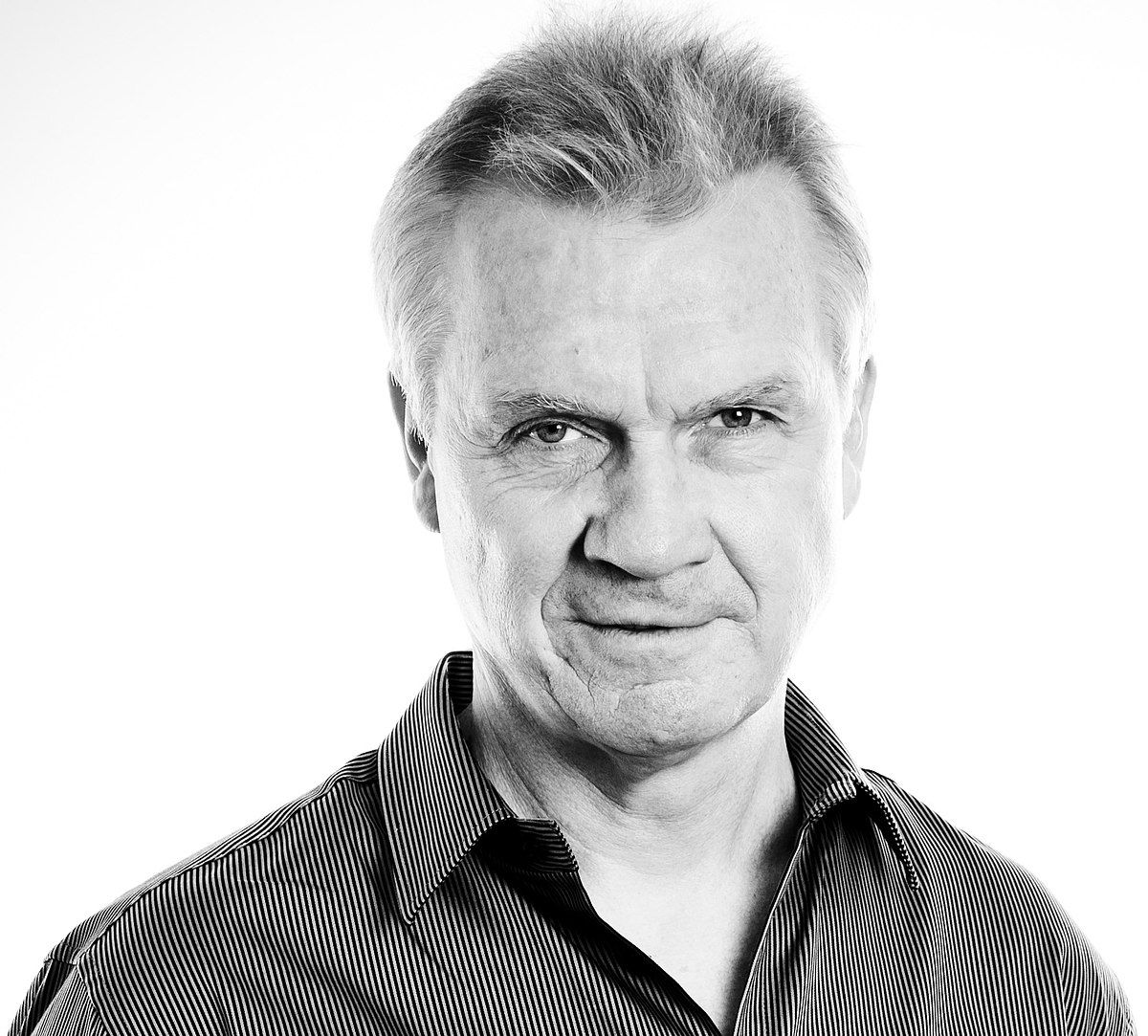
SubVision was invited to submit a demo to both Carroll and the US producers, which included creators Brian Henson and Rockne S. O’Bannon, and co-executive producer David Kemper. But with the Sci-Fi Channel, the Henson Company’s regular production partners at the Hallmark Channel, and the Australian network Nine also involved to one degree or another, there were a lot of potential stakeholders to navigate.
“We later discovered it had seven executive producers involved in the production,” recalls Neal. “I gather that they were all either from the finance side or from the distribution side, and they all had to approve the music. It was pretty time-consuming, because, in those days, international communications were not quite what they are now. We did one piece and they made some comments. They kind of liked it and there were a few things they didn’t like. So we did a second piece, which they all apparently loved and that was the one that we developed as the opening theme.
“Braedy came up with the rhythm track, the drum track with that sort of tribal feel. Then I just wrote the vocal melodic line over the top of that. That was what we had initially. Then the other bits and pieces that fall mostly in the middle of the track came in later once we had those two things. It was really once the track was fully recorded, that we got Avigail in to multilayer the vocals to really make it what it ended up being.”
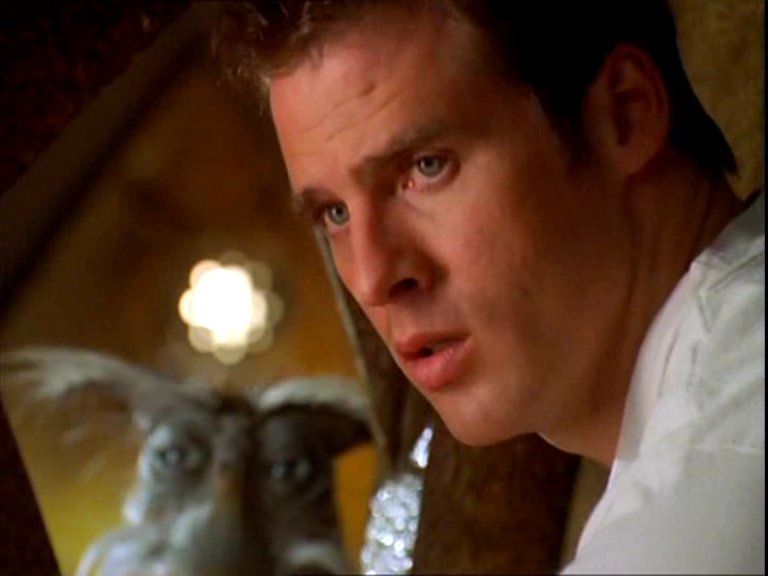
Session singer and voiceover artist Avigail Herman was recorded singing different vowel sounds that were then layered to create the frantic, rising chorus from deep within the Uncharted Territories. Farscape: The Illustrated Companion (2000) notes that there was some pushback on the female vocals, but SubVision held firm.
“In the back of our mind, it was just like a war cry in a different language,” recalls Neal. “We loved the fact that they gave us the freedom to develop that idea. Originally I sent them just a brief passage of Avigail and I said, ‘We want to sort of take this a bit further and make it a bit wilder and crazier.’”

Matt Carroll’s Exit and Farscape’s Second Season Drama
Eventually, SubVision settled into a groove, but it wasn’t to last.
“It was an episode a week, [that] was the production schedule that we were doing,” says Neal. “It went really well, the first series. Week in week out – everybody loved everything. Once we started the second series, there were just problems right from the beginning. Our Sydney production team had started to clash with the Americans and by Episode 2 or 3, it was clear that they were going to sack everybody which they did and bought in another production team.
“The new production team started saying that they hated the music and so Braedy and I were kicked off by Episode 5.”
The formidable Matt Carroll left the show, ostensibly to return to film. David Kemper, now executive producer, told Cinefantastique (April 2001): “This show that we did was enormous. Matt worked at it and never intended to make it his career. Other opportunities came up.”
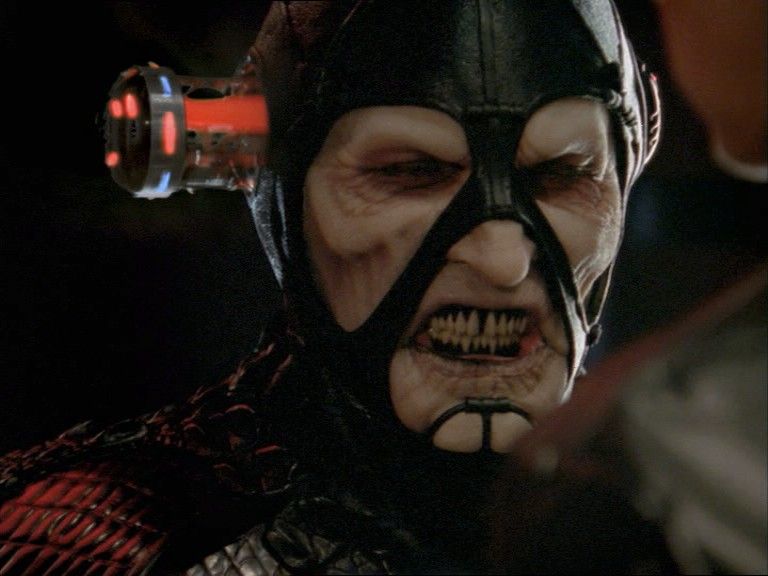
“At the beginning of the second series, they said, ‘Look, we want your scores to sound bigger,’” recalls Neal. “And we said, ‘What do you mean by bigger?’ – ‘Yeah, more orchestral.’ And I said, ‘Well, that’s fine, we can do that. But you know, you’re gonna have to pay us a hell of a lot more money to do that.’ They said, ‘No, you can’t have more money.’ And I said, ‘Well, you know what, it is as big as it is going to get.’”
Carroll’s exit from Farscape coincided with the replacement of VFX company Garner MacLennan with Animal Logic, then hot off The Matrix (1999). Makeup and hair supervisor Lesley Vanderwalt left too, going onto Moulin Rouge! (2001) and the Star Wars prequels. Six episodes into the second season, production designer Ricky Eyres also moved on. That’s not to say they were all victims of studio politics, but that the movement of so many key personnel in a film industry as close-knit as that of Sydney’s couldn’t help but create an atmosphere of anxiety for those who remained.
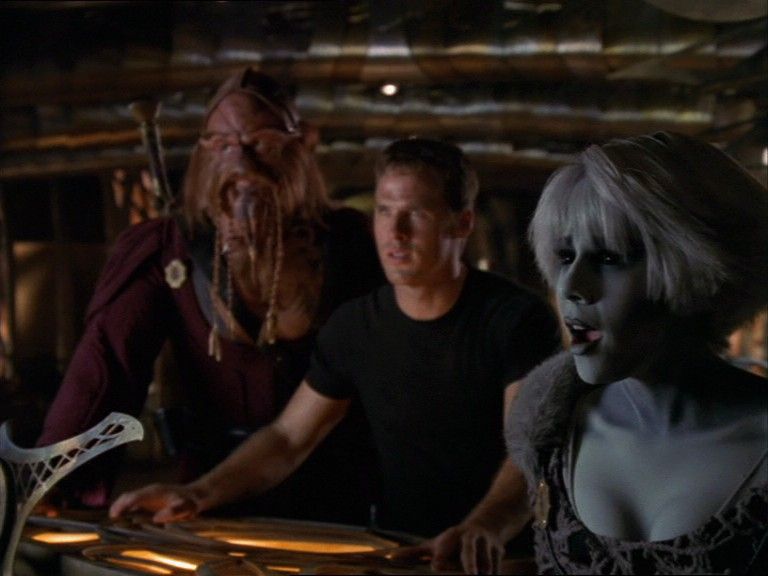
“Yeah, particularly with crews,” Neal agrees. “They obviously had to negotiate pretty hard with the actors because they couldn’t afford to lose them, but the actors themselves were pretty pissed off with the whole thing. The passion that was there in that first series was lost to a very great degree. We were really good friends with Anthony Simcoe, who played Ka D’Argo. Braedy’s guitarist who played all our guitar tracks and Anthony were best friends, so we kept hearing all the scuttlebutt back through that way.”
Guy Gross was then best known for his BAFTA-nominated score for the hit comedy The Adventures of Priscilla, Queen of the Desert (1994). He was working on the 20th Century Fox lot in Sydney scoring the slasher movie Cut (2000), not far from where Farscape was being edited, and hit the ground running on ‘The Way We Weren’t’ (S2, Ep5).
“There was a tussle of control of the production between the US and the Australian producers,” he says. “And there was some very unpleasant collateral as a result of that tussle. The composers were one of those bits of collateral, the sound team was another bit that got shifted. I think the visual effects also got swapped over.
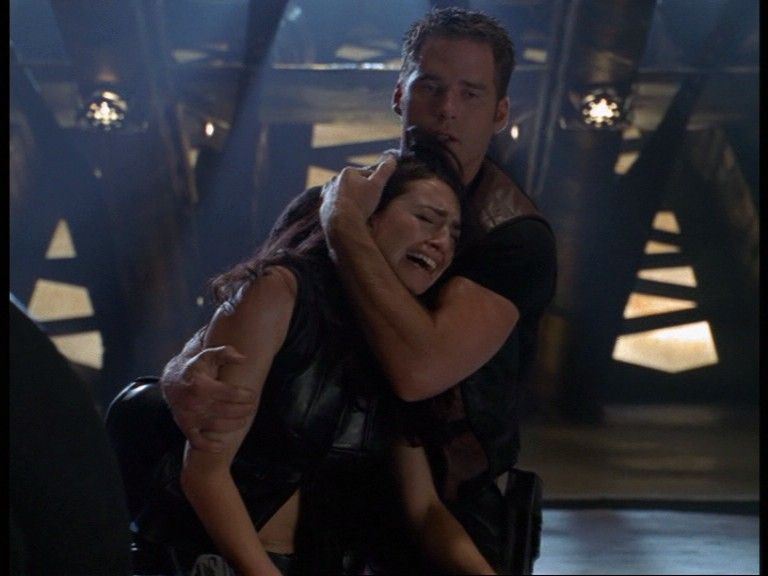
“I don't think any of the decisions were for any creative issues, it was all just to exert control over the production, and make some changes, like dogs pissing in the corner of a room just to mark their territory. It was a pretty unpleasant set of circumstances for everyone involved.”
“At the time, it was very traumatic,” Neal says. “I had words [with Guy] and everything. But, you know, we’ve been friends for a long time and we got over that. A couple of years later, we’re great mates again. But at the time it was terrible. There were just all kinds of issues going on, the actors weren’t happy. The directors were all sacked and new directors bought in, the sets were changed, all kinds of things happened.”
Gross admits that he could have managed his part in the drama better.
“It was destined to be difficult,” he says, “but I certainly didn’t contribute to smoothness in that I was young and naive. I should have alerted Chris way earlier to what was going on. I didn’t realize that he didn’t realize what was going on. It was just yuck, it was not good.”
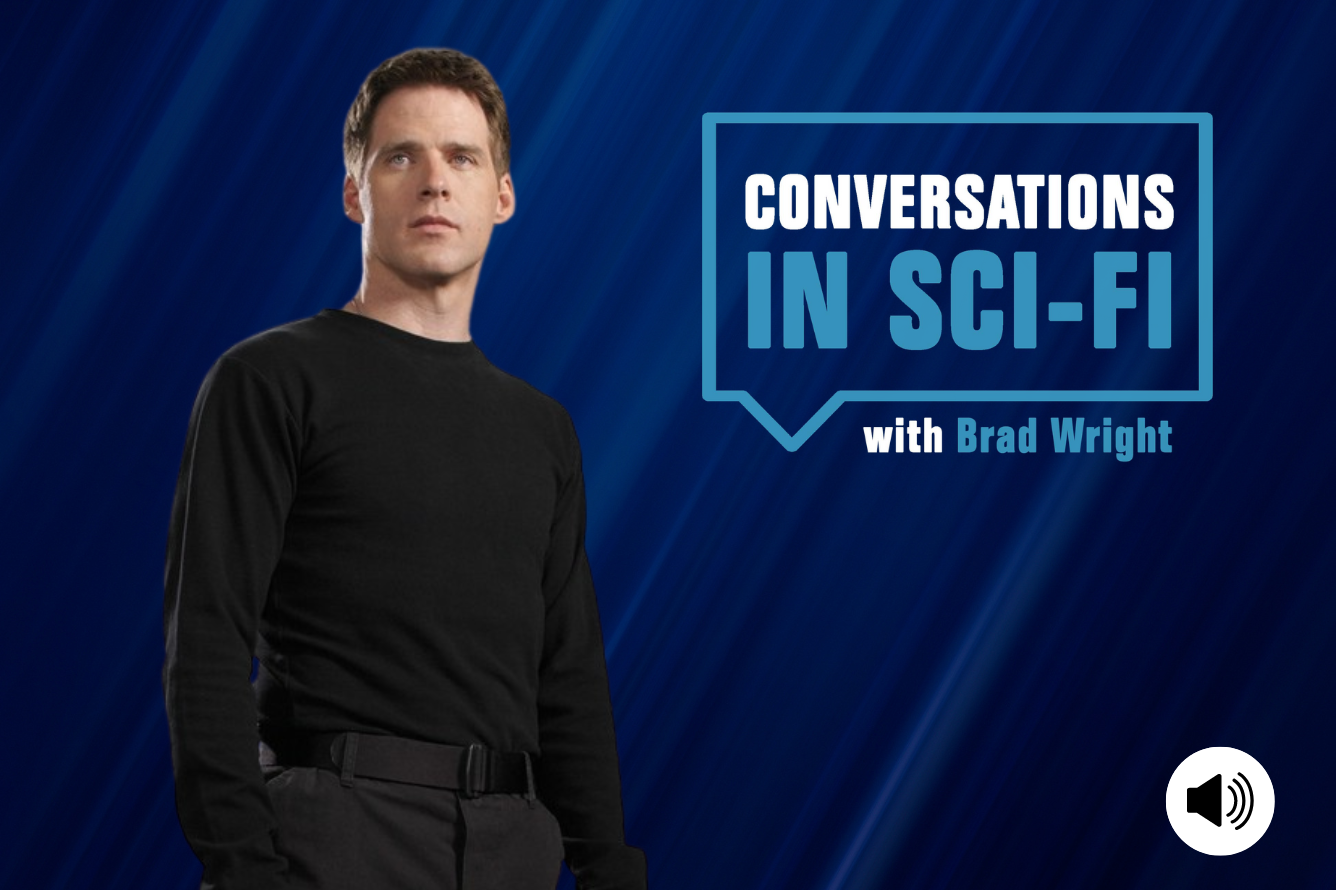
Enter Farscape’s One-Man Orchestra
“From a creative point of view, we’re so different in our approaches,” says Gross. “What Chris and Braedy brought to the score was so out there and... so Farscape. It was so fresh and new, and I was quite a traditional composer. I’m not good at that stuff – I’m good at expected, I’m good at the things that feel comfortable. It was really, in some ways sad for the production that we didn’t keep pushing it in that way. It just wasn’t in my vocabulary musically. So I had to be true to my style, which was to go straight and do as best I could an orchestral score, albeit synthetically.”
Gross explained the process behind scoring an episode of Farscape.
“Composers generally can’t start on a production until the pictures are basically done. With Farscape, obviously, there are some visual effects that were still to come, but in essence, the episode was finished.
“We would all sit in a room – sound editors, picture editors, directors, producers – and watch the thing beginning to end without music, and whisper and discuss and write down what we thought, what should go, where it should go.
“[We would] do a thing called spotting notes – I had a book of them. I should sell them on eBay one day – make a buck. Then we would decide where the music goes. They’re called spotting notes because you choose what spots the music goes in. We then go away and about 10 days later, deliver a score to the final mix. Generally, you would have had the director or producer come into my studio to approve it as it goes but pretty quickly [I] got to know what they wanted and there weren’t a lot of re-dos. Eventually, it went pretty smoothly.”
SubVision’s theme remained in use through Season 2, but Gross was soon tasked with its replacement. The resulting Season 3 and 4 theme has the same shamanic tempo and urgent rising vocals, but have almost been entirely reconstructed – rebuilt into a shape we recognize from afar as the same structure, but using different materials. It seems to reflect where Farscape found itself in the second half of its run: more certain, more sweeping, but a little less experimental, and unpredictable.
“They wanted a new theme for Seasons 3 and 4. And the classic brief: we want something the same, but different. It’s just an impossible brief and it took me quite a few goes to get that right. In fact, some of the similarities between the first season and the third season theme were significant enough for me to give Chris and Braedy a slice of the royalties from Seasons 3 and 4 opening theme, because there definitely were some musical elements that I was incorporating to make sure that the two themes felt the same.
“The rising minor third idea is something I carried through and some of the weirder vocal arrangements are carried through a bit as well. So there is a textural and somewhat harmonic similarity, I hope, between those two things.”
Gross’s more classical inclinations were a more natural fit for the move towards a “more orchestral” score. However, it was a one-man orchestra – composed digitally with nary an oboe in sight. A 20th Anniversary edition of the Farscape soundtrack was released in 2020 and – perhaps by design, or by mischief – the shift in styles is pronounced as SubVision’s alien rave track ‘Tannot Grooves’ (from ‘Thank God It’s Friday... Again’ – S1, Ep6) gives way to Guy Gross’s sweeping Howard Shore-style lament of ‘Aeryn’s Funeral’ (from ‘Die Me Dichotomy’ – S2, Ep22).
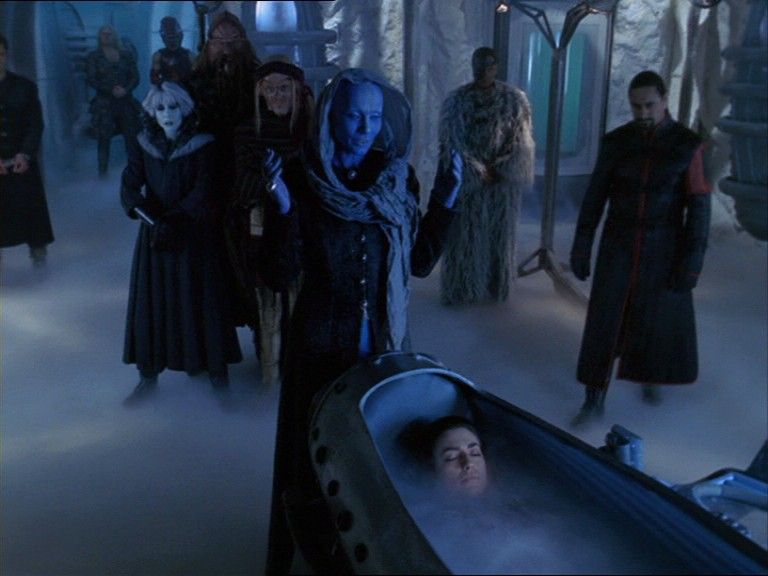
“They knew that that was my style and so they were quite happy for me to push it in that traditional sci-fi underscore method,” says Gross, “which is the more orchestral sound, the more – dare I say – Mickey Mouse-ing. Mickey Mouse-ing is the musical term for when you follow action very closely. If a character is literally turning in a scene, the music may turn musically with that character, or if their inflection of dialogue changes for an emotional reason, the music will follow that beat. Mickey Mouse-ing is the most obvious if a character is running down a corridor – your music is running too.”
It’s an especially apt reference as Gross began his career scoring Australia’s marsupial Mickey in The Adventures of Blinky Bill, which was directed by his father, the legendary late animator Yoram Gross. It was the family firm that animated the Looney Tunes-inspired segments in ‘Revenging Angel’ (S3, Ep16).
“I actually grew up with animation music. So when it came time to that animated episode of Farscape, I had a hoot, doing that very Carl Stalling-esque score, which I think was probably one of the longest episodes to compose in the whole series.”
Putting the Opera in Space Opera
Gross’s compositions certainly reflected Farscape’s self-image. The closest thing we had to a small screen Star Wars for two decades, his orchestral style pulled in stylings of big-screen bombast. Take the martial horns, rat-a-tat-tat drums, and warrior chants of ‘The Last Stand’ (from ‘Into the Lion’s Den: Part 2 - Wolf in Sheep's Clothing’ – S3, Ep21).
Is it innovative? Probably not. Is it effective? Frell yes.
“I don’t use the word cliche in a negative sense, but it's very cliche,” says Gross. “You expect to hear certain things when certain things happen on screen, the bad guy comes out – there are certain chords you will go to when the bad guy comes out. It’s just the language of cinema music. Again, going back to the change of Season 1 to the rest of them. My music was motivated by what I see on the screen, whereas Chris’s music was more [about] finding the right tone for a scene, and letting that tone wash through the performances and keep you in that moment. So they were very different approaches.
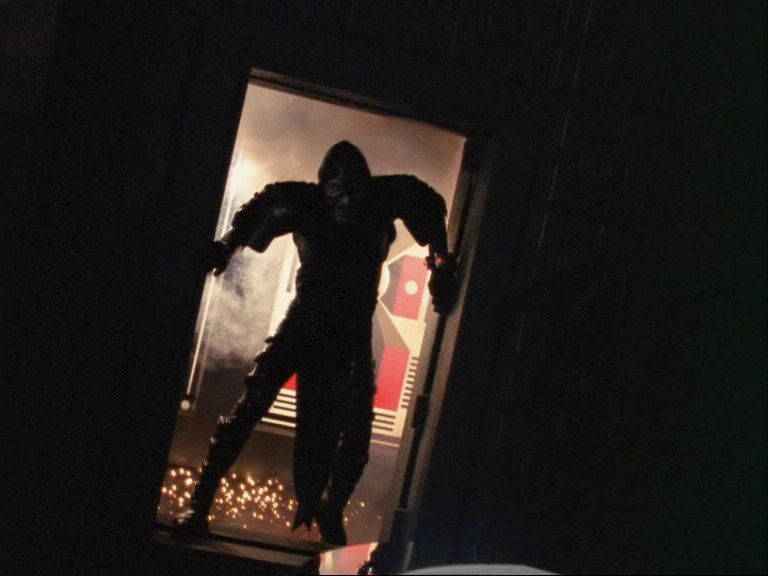
“That’s the big fun of Farscape, that you actually get a show that allows you to be so bombastic. The bad guys are really bad, over the top. The love themes are very syrupy, and lovey. It really lets you go from either end of extremes musically, which is a great joy because most television and a lot of features, it’s an exercise in subtlety in many ways.
“I've had many a director sit in my studio and say, ‘Yeah, now look, I think we're saying too much here. I think we're really telling the audience how to feel’ and I would go, ‘Yeah, good, right?’ And they would say ‘No, no, too much.’ And that becomes the dilemma of how much can we tell in the story with the music. How much are we allowed to push the audience to feel that little bit more? And it’s never an easy balance to find that right amount.”
Following Farscape’s abrupt cancellation in 2002, the show received a stay of execution in order to wrap up some of the lingering plot threads with the two-part 2004 miniseries Farscape: The Peacekeeper Wars. Finally, orchestral met orchestra when executive producer David Kemper and producer Andrew Prowse let Gross loose on the Sydney Symphony and Cantillan (its choir).
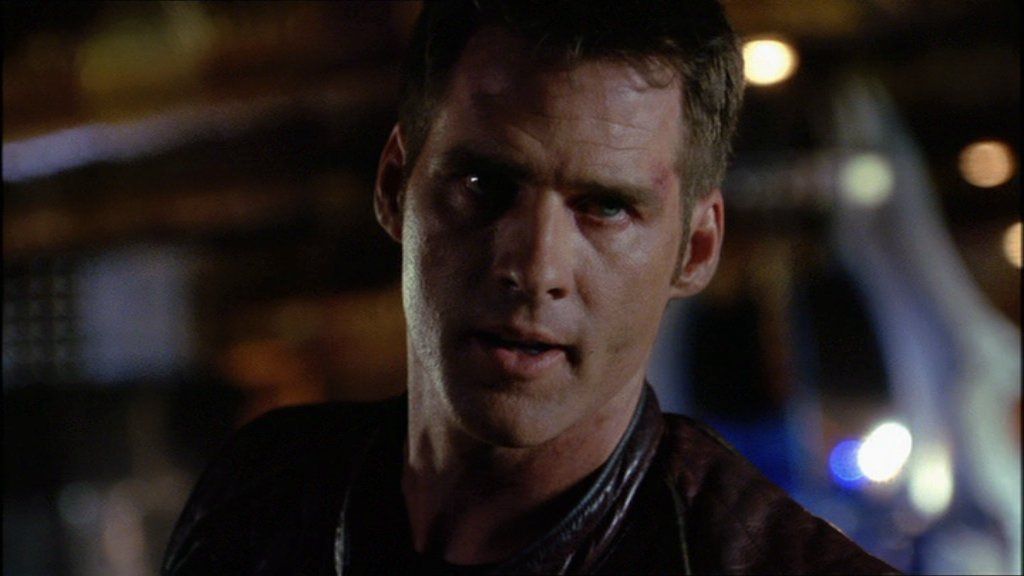
“David definitely says ‘We’ve got an orchestral budget – let’s have some fun,’ recalls Gross. “At the time, I was a partner on an orchestral scoring stage. So I had quite a bit of flexibility in making the score happen and I could work around the symphony’s schedule because I basically had an orchestral scoring stage at my fingertips. That was a blast. I think the biggest session was exactly 100-piece, plus a 40-piece choir. And I conducted a few of those sessions, just because how many times you're gonna get to do that?
“I generally hire a conductor for sessions of my music because there are better conductors than me who are available and the result can be better. But because the players were so good, I had to really screw it up to have damaged the score with my conducting. When you're working on an orchestral recording, all the musicians have headphones that have a click track, which is the metronome clicking in their ear. So they’re not really looking to the conductor to understand the tempo, they’re looking to the conductor, possibly for some expression. Because it was my music, and it was very exciting, I think I ran the session reasonably well – we got through it all and got it recorded.
“And analytically,” he concludes, “[it’s] still some of the best music I've written today. Very proud of it.”
Guy Gross is still scoring for film and TV, working with the Church Street Studios collective he founded in 2015. His most recent project was the music for the Australian comedy-drama How to Please a Woman (2022). Meanwhile, Chris Neal is making his own music and has recently released an album, Not Robinson Crusoe (2022), as a member of the blues rock three-piece Riff Gun.
As for producer Matt Carroll, he works for the Create NSW’s Screen Destination Team attracting major overseas productions to the state, including Hacksaw Ridge (2016) and Pacific Rim: Uprising (2018). Basically, he’s doing fine.
The cost of your membership has allowed us to mentor new writers and allowed us to reflect the diversity of voices within fandom. None of this is possible without you. Thank you. 🙂


